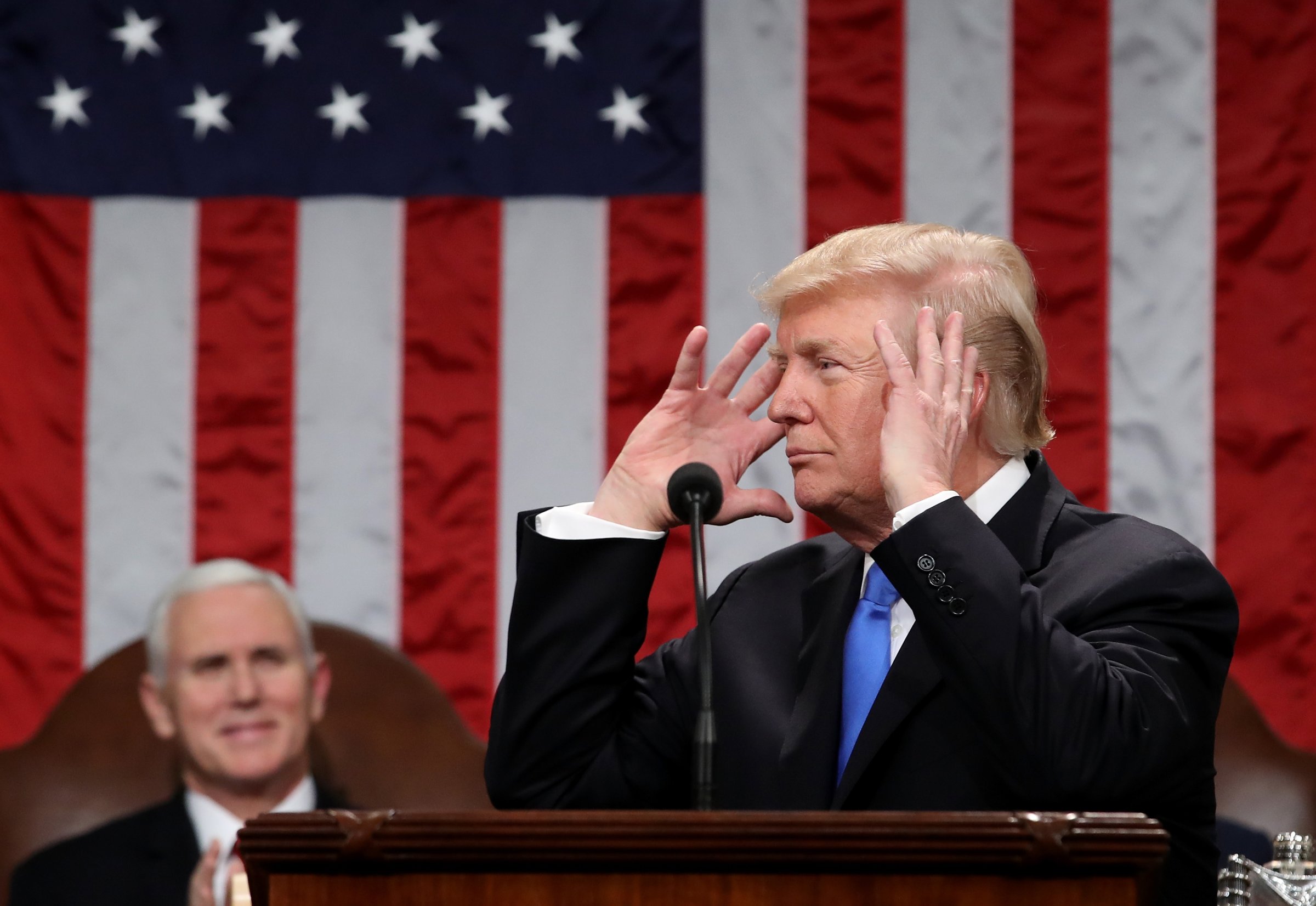
The political theater of the State of the Union is predictable. A President enters a joint session of Congress to loud applause. He touts his accomplishments, puts forward an agenda for the coming year, tells dramatic stories to illustrate policy positions and affirms the greatness of America. During the spectacle, the side of the President’s party repeatedly offers a standing ovation. The other sits with grim faces and folded arms. Pundits try to make sense of it. Substance gets lost.
Donald Trump’s first State of the Union was a bit different. Not so much in terms of the spectacle. Partisan differences were on full display as most Democrats sat stone-faced. Republicans cheered. Nothing new here. The difference was context. Robert Mueller’s Russia investigation hovers in the background. Commentators wondered if Trump, like Richard Nixon, would mention the investigation directly. He did not. There is the ongoing Republican attack on the FBI as Americans wait for the memo from the House Intelligence Committee. These are the dark clouds that cast a long shadow over the speech.
But something even more fundamental makes this State of the Union different. Just last week the Edelman Trust Barometer released its 2018 report. The authors declared that there has been a “decimation” in trust of American institutions, and confidence in the traditional structures of our leadership has reached a crisis point. Americans have lost faith in government and in those who claim to represent us. That loss of faith might stem from a deep-seated suspicion about big government, or the ongoing resistance to Trump’s policies. Whatever the motivation, a majority of Americans do not trust what is going on in Washington, D.C.
What happens when a large swath of the audience for the State of the Union no longer believes the theater? When the constant lies of politicians, especially the lies of the President, have poisoned the body politic? With the erosion of trust comes deepening partisan divisions. We believe who we want to believe, trust who we know or think we know.
The spectacle of Trump’s State of the Union did nothing to change this fact. His speech reflected it. Many absorbed his four pillars for immigration policy as a mean-spirited screed. The President trafficked in grief porn as he took advantage of the unimaginable losses of bereaved families to make spurious points about violent crime and immigration. (Meanwhile, research shows that immigrants commit crime at a lower rate than native-born Americans.) He claimed that ending what he calls “chain migration” was actually a defense of the “nuclear family.” And in a crude nativist appeal, the President shamelessly pitted “Dreamers” against “Americans” with the phrase, “Americans are dreamers, too.” In this context, Trump’s appeals to bipartisanship and his claims about “all of us, together, as one team, one people and one American family” amount to a broad invitation to believe the Great Lie.
Near the end of the address, as expected, Trump touted the greatness of America. It came on the heels of all the nasty stuff about immigration, bolstering America’s nuclear arsenal and muddled claims about North Korea. Republicans leaped to their feet to shout, “USA! USA! USA!” I watched mostly white men shouting with glee as they cheered the snake-oil salesman in presidential garb. Something about the scene made me shudder. It was all too familiar. No matter the political or moral consequences, this was an old vision of America — an old lie — some people desperately wanted to protect. Whether you trust him or not, we must know that spectacles like these can be really dangerous.
More Must-Reads from TIME
- Cybersecurity Experts Are Sounding the Alarm on DOGE
- Meet the 2025 Women of the Year
- The Harsh Truth About Disability Inclusion
- Why Do More Young Adults Have Cancer?
- Colman Domingo Leads With Radical Love
- How to Get Better at Doing Things Alone
- Michelle Zauner Stares Down the Darkness
Contact us at letters@time.com